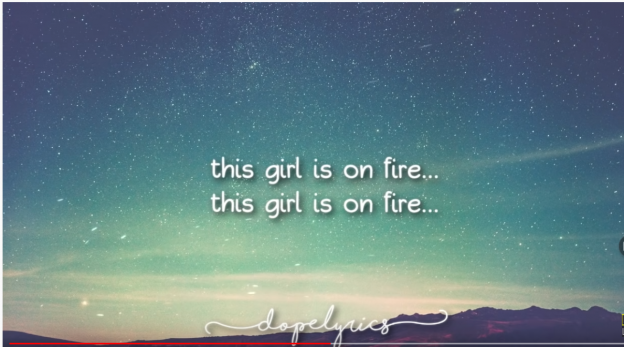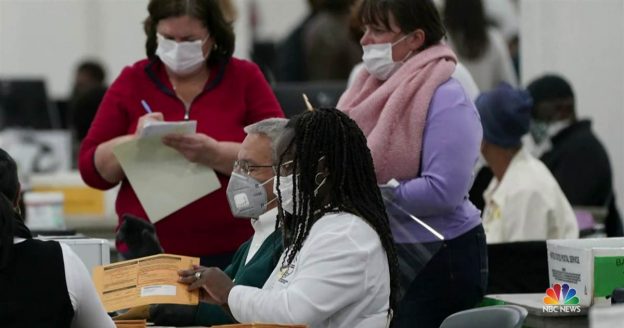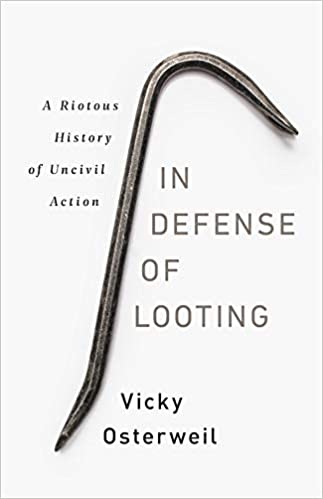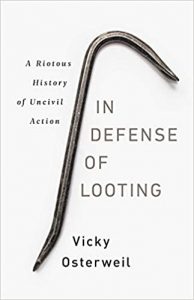Young Rebecca Dillingham, aka Dissident Mama, calls me her mentor. In a two-part interview, Rebecca also says her mentor is “rational, but on fire.” Well, let me tell you something:
This girl is on fire, to quote wonderful Alicia Keys (play her; ignore the terrible backing band).
And by “this girl,” her mentor means Rebecca.
At no time have I been prouder of the “mentor” designation than on reading Rebecca’s “Monasteries, monks, & monuments – part 1.” The disquisition is scholarly, rational, contemplative—plaintive, too—polite, and pure in its patriotism, faith and fine penmanship.
I don’t need to agree with everything Rebecca writes—she’s paleoconserative, I’m uncompromisingly paleolibertarian—to reiterate how proud I am of her natural-born fierceness (you can’t fake passion), prose, her courage, and, above all, the sheer goodness of the girl.
Unimpressive by comparison is the monseigneur’s response to Rebecca, in “Monasteries, monks, & monuments – part 2.” Posted by Dissident Mama (Tuesday, October 27, 2020), it is a weak, dissembling tract, when compared to Rebecca’s tour de force, “Monasteries, monks, & monuments – part 1.”
Enjoy the latter:
Dear Brother Gabriel,
For nearly four months, I’ve been mulling over this letter, what I should say, how to approach it, or whether or not I should even send it. But since “everyone should have a monastery that they consider their own, a place they visit often and support financially and pray for daily,” as Archpriest Michael Gillis says, I finally decided to reach out and explain the reasons my family stopped our monthly giving to Hermitage of the Holy Cross. I think it’s only fair and right to expound upon why your monastery is a place we previously considered “our own,” as well as address and challenge some misinformation that’s being disseminated under the Holy Cross name.
In late June, we received your July newsletter in the mail. In the feature article, “Of Wrath and Righteousness,” the anonymous writer (who I now realize is you, Hieromonk Gabriel) asserted that we are living in a “historical moment” in which “the wounds of the past months and years and decades and centuries have been torn apart afresh (although it must be said that for many among us, these wounds were never actually closed).”
“And so the crisis facing us is this: how can such terrible wounds be healed? How can we, as a nation, repent of our sins? How can we root out injustice and plant in its place the righteousness for which so many now so earnestly seek?”
This fallacious theme is built upon the non sequitur of “systemic racism,” yet you never define what that is or how it can even be plausible that America is still racist against people of color, even after emancipation, reconstruction, universal suffrage, desegregation, forced integration, civil rights, affirmative action, Head Start, all-black colleges, federal programs that promote black home and business ownership, and now diversity-and-inclusion schemes within both the private and public spheres. The implication, of course, is that you sympathize with the BLM-Antifa movement, although you are careful not to state that outright.
So, let’s take your claim that there are even “national” sins of which only certain people must repent. This is obviously a reference to slavery – the tired red herring incessantly used by progressives in order to buttress any wild idea they conjure up. And even though you don’t explicitly condone the riots, you do make an emotional appeal that they’re a consequence lacking “solutions” to the centuries’ old “wounds.”
This brings me to the online version of “Of Wrath and Righteousness,” a varied and longer treatise than the aforementioned print version, which I noticed in mid-July at the Holy Cross website. As a former reporter and newspaper designer, I feared that the feature photo choice – an image showing a rioter holding a sign with the MLK quote “A riot is the language of the unheard” – was foreshadowing of the woke teeth-gnashing so common in American Christianity.
The most disturbing excerpt said, “Across the country historical monuments, often associated with the Civil War, are being defaced and torn down by mobs. Given that slavery is believed by many people to have been the sole reason the Civil War was fought, it is quite understandable that they therefore view monuments to Confederate leaders as an intolerable affront (and I think this is a good reason to consider removing them, out of love for neighbor and desire for peace).”
So, the monuments should come down because they supposedly hurt the feelings of the uninformed and miseducated? This is pure emotivism and what I would consider “an intolerable affront.”
I’m quite certain the article still had this wording when in mid-August I emailed the link to Dr. Donald Livingston, president of the Abbeville Institute and also an Orthodox Christian and my mentor and friend. Interestingly, the above excerpt in parentheses now reads, “(and I think this is a good reason to enter into a discussion regarding these monuments, out of love for neighbor and desire for peace).”
Sure, you claim in the current edition of the article that your purpose wasn’t “to take a position one way or the other as to whether any of these statues ought to be removed.” However, one thing is crystal clear: you are willing to see a good and a bad side in BLM-Antifa, but not when it comes to the Confederacy. I would say this is the “crisis”: Christians very publicly demeaning my people, the Southern people, and doing so from a historically ignorant and a quite unloving view that both come across as palpable to the masses if laced with enough spiritual bromides.
Unfortunately, way too many Orthodox (even hierarchs) fall into this “social justice” trap, which is a result of plain-old bad American history. So, I pray you read on, as I’m going to try to tackle your two statements from that angle.
Although you don’t come out and say that you think slavery is the “sole reason” for the War, the inference is that because some people subscribe to this false belief, removing monuments should be up for consideration. And since your suggestion is built upon the slavery mythos itself (the claim that the institution was the single cause of secession and the subsequent invasion and violence), let’s talk about that.
Did you know there were many godly Southern slave owners (who at max were 20% of Dixie’s population) and quite evil and “racist” abolitionists? Did you know that blacks and American Indians owned slaves, so did Northerners including Grant’s wife, and that it was Africans who themselves sold other black Africans in the Trans-Atlantic Slave Trade to Western traffickers, many of whom were ethnically Jewish? Even though slavery was an American institution, the majority of Confederates, which even included black Confederates (gasp!), were fighting for hearth and home.
Father John Whiteford and I discuss slavery in this podcast. Of course, there are countless examples of slave owners in the Bible, from Abraham to the Patriarchs. There was kingdom-wide slavery during the reigns of Solomon and David. And when Jesus referenced slavery in His parables, He was cleverly using it as a metaphor to communicate spiritual slavery, since physical bondage was a recognizable and common institution of the time. Through the biblical lens, Southern Presbyterian theologian Robert Lewis Dabney wrote at length whether or not it was even inherently sinful to be a slave owner.
Now, I’m not saying the Bible mandates slavery, but it was a “universal fact of life in the ancient world,” as Father John explains, and was (and is) a result of the fall. So why build a premise based upon the bludgeon of slavery? To me, that seems not only a disingenuous precedent, but a dangerous one of surrogate atonement.
If we follow that logic, perhaps we should consider removing monuments to Russian leaders. The Russian people participated in serfdom for 900 years, so should we raze monuments to the serf-owning St. Vladimir of Kiev? Russia banned “Uncle Tom’s Cabin” until after WWI, so should we demean its people in perpetuity?
Of all the people in the world, I think Orthodox Christians should understand the perils of what C.S. Lewis called chronological snobbery. Just as Orthodox don’t rely on a linear perspective of history, neither do we Confederate-proud Southerners. We don’t fool ourselves into thinking that things are always getting better, or that people are being perfected through their post-modern sensibilities and their own demonic versions of “their truth.” We’re not just making it up as we go along.
“We” came from somewhere. Forged in blood and fire, the South is a thing, a real and magnificent place with a real people – diverse with a deep history, time-honored traditions, different accents and idioms, unique food and customs, and is honestly, the best thing going in these disunited states, both Orthodoxy-wise and in its opposition to god-crushing globalism.
I firmly believe that the prime impetus for distorting Confederate memories is due to their “stand for Biblical authority” and their compelling stories of redemption. The average Confederate soldier trusted the Lord with all. Their faith was truly the only thing that got them through the invasion and deadly conquest of their homes, the murder of their fathers, sons, and brothers, the rape of their women, starvation, and the theft of their property, as well as post-War military occupation, disenfranchisement, perpetual reconstruction and shaming, and the government-imposed poverty that followed and is still felt today in many parts of the South.
And let’s take an honest look at some of the Southern heroes being defamed. I don’t know where you’re from originally, but I’m sure by now you know that Stonewall Jackson is West Virginia’s most famous native son. This “Confederate Joshua” was an extremely pious Christian and brought more black people to Christ than any of the self-serving “racial reconciliation” frauds littering many American churches presently. Let’s not forget that this bold act was not only unpopular in some circles but could also be highly problematic since teaching slaves to read and write without his master’s consent was forbidden.
Robert E. Lee too invested the time and effort into making his slaves literate prior to freeing them before the War. Despite the manipulative and malicious historiography constantly hurled at this Confederate and US veteran, it’s fact that Lee was a devout Christian, and was renowned for his humility and kindness to all, despite their social standing. “Above all things, learn at once to worship your Creator and to do His will as revealed in His Holy Book,” Lee advised.
The famous general shared the communion table with black folks and helped to set a Christian tone of postbellum reconciliation. My eldest son’s middle name is Lee (and hence his Orthodox name Leo, as in Leo the Great, who was also a defender of his faith and his country) because as Dwight Eisenhower described, the quintessential Virginia gentleman was “selfless almost to a fault and unfailing in his faith in God.”
So often maligned is the fiery Nathan Bedford Forrest who came to accept Christ quite a few years after the War. Yep, the man who Sherman called “that devil Forrest” could have embraced revenge, but instead advocated for true healing, in a time when it sometimes wasn’t fashionable to do so. Yet, all the masses can utter about Forrest, if they even have a clue at all, is “Hey, wasn’t he in the Klan?”
This is the kind of ad hominem attack that passes for “knowledge” these days. As a result, the bodies of Forrest and his wife were exhumed from beneath their monuments in Memphis, where they had been resting for more than 100 years, taking with them (like so many other razed monuments) the stories of fallen but fascinating people that tell a nuanced history, not the boring caricatures of leftwing academics, churched charlatans, and the 1619 Project.
And what about my highest-ranking Confederate ancestor, General A.P. Hill, who was murdered by federal troops at the Siege of Petersburg? He is buried not below his monument in Richmond, but he is actually entombed within it. Should we consider moving him, my kith and kin?
Why are Christians being tacitly encouraged to participate in gnosticism? Doesn’t matter matter? Do you not see that when monuments to Southern heroes, veterans, and fallen Confederates are being desecrated, spat upon, mocked, torn down, and dug up, that this is a type of iconoclasm? Why would we even want to converse about monument removal and bolstering ancestral guilt? Isn’t that a violation of the 5th Commandment? Are we not supposed to honor the dead?
I know that on the advice of His Eminence Metropolitan Hilarion the monastery has not been receiving outside visitors since mid-March. I want to be obedient to Met. Hilarion, but I also ardently disagree with that restriction. “Mother of Five” and I discuss on my podcast our frustration with the Church’s overall response to covid. But what does this have to do with your essays?
While you all up there in the safety of your monastery and its “seclusion from the distractions and temptations of the world,” we lay people who financially and spiritually support Holy Cross must live out here amongst the brainwashed neo-Bolsheviks, surviving in an increasingly acceptable paradigm of fear that is undergirded directly due to your coddling of the very mobs you claim to abhor. This is not a good plan for promoting peace.
While the monastery shuts itself off – unlike St. Herman of Alaska who toiled fearlessly to tend to the sickly, infirm, and dying during an epidemic during his time – we’re being to told to have a “discussion” with people who think discourse and civility are dog whistles for white supremacy.
Do you understand what leftists in the streets do to people who dissent to any shred of the BLM worldview? Or have you heard about the mandatory “racial sensitivity training” (read: anti-whiteness) that many government agencies and corporations make their employees (like my husband) endure?
The mania is getting pretty darn close to the struggle sessions communist resistors experienced during Mao’s Cultural Revolution. And how is this allowed to happen? Why, because the barbarians (who aren’t nearly as nice as the Visigoths and Vandals) are given aid and comfort by mayors and police, DAs and the courts, the media, academia, big business, and the Church.
How can we have a discussion with secular religionists who believe that any dissent is a microaggression, that nonconformity is hate, that logic is a tool of the patriarchy, and that speech itself is violence? And if you disagree, well, that’s just further proof of your “white fragility,” thus, your innate racism must be punished punitively and purged by any means necessary. This is a critical theory pogrom that seems to me to be in direct contradiction to the 9th Commandment.
I’m baffled as to why you’re urging Holy Cross supporters (many of whom are Southern) to have a “national conversation” about a made-up “racial reckoning,” a fake “historical moment,” with people who also routinely break the 1st, 2nd, 3rd, 8th, and 10th Commandments, and veil hate as love. These anarchists are akin to the Israelites in Judges, where “everyone did what was right in his own sight.”
The ideology of the roving reprobates is specifically built upon rejecting civil discourse. Therefore, it’s utterly futile to seek reconciliation (which presupposes forgiveness, good will, and mutual respect) with a people who do not share such moral groundings.
You say condemnation drives away the Holy Spirit, but it is Southern-without-apology folks who never seem to be the neighbors for whom priests, pastors, and politicians cajole people to sympathize. We’ve been painted as the “condemners” simply for knowing all too well that monument removal is a symptom of the “spiritual crisis” of mass democracy, centralization, materialism, rationalism, and secular-humanism.
Southerners lived through the terror that was foretold in the puritanical-progressive kontakion “The Battle Hymn of the Republic”: that God will use His “terrible swift sword” and “fiery gospel writ in rows of burnished steel” to bring judgment upon “condemners” and “crush the serpent with his heel.” There was no “Glory! Glory! Hallelujah!” for the Confederacy.
So when people like me stand up for faith and family and against “Union” by force, it’s no wonder that the South is enemy number one. In fact, I would say it’s because of this belief in subsidiarity and against an imperial “indivisible” Union that the words and statues of statesman John C. Calhoun are being erased, not his views on slavery as an institution.
Same goes for the Cherokee and other “civilized” Native American tribes that joined the Confederate cause. Even they aren’t safe from being cancelled these days, for they too struggled for independence from the gigantism of the nation-state – the same Federal leviathan that currently delights in propping up the degenerate system that targets our children and then exports these anti-family “values” around the globe. It’s the same system that subsidizes infanticide here at home, and indiscriminately kills people in foreign wars, while typically supporting the side(s) that persecute and kill Christians.
Surely you understand that decentralization via the collapse of the evil Soviet Union is (besides the will of God) what is supporting a rebirth of Orthodox Christianity in Mother Russia and in many former Soviet bloc countries. So why perpetuate the progressive language and leftist fictions that have erected an Iron Curtain here in my sons’ ancestral home, one that silences and punishes them for merely existing?
Russia and Dixie actually have much in common, so shouldn’t Russian Orthodox Christians comprehend better than anybody that trying to appease the heathens is not just physical suicide, but spiritual suicide? Why trust a neo-Bolshevik when they’re not even as smart as the original Leninists, who at the very least thought homosexuality was a bourgeois decadence?
It’s concerning too that the ecumenism of “anti-racism” and hint of support of Southern cultural genocide is not only coming from a monastery, but one nestled in the foothillls of West Virginia – a swath of Old Virginia, which was clearly created out of “unconstitutional usurpation.” Is there no concern for the plight of your Southern neighbors or at least a grateful heart for their hospitality?
I’m reminded of St. Innocent of Alaska who proclaimed “the Gospel of Christ to the natives in their own tongues,” as goes the hymn, and toiled in “hardships and dangers” to bring “many peoples to the knowledge of truth.” Or the aforementioned St. Herman, who defended the rights of the Kodiaks and Aleuts and was a protector of the persecuted. Or St. Nicholas of Japan who immersed himself in the language, culture, and homeland-hero stories of the Japanese, even translating the Bible and services into their language, making Orthodoxy more accessible to the natives.
This begs the question: why would you and the monastery for which you speak, not offer the same basic manners to the people group you dwell amongst? It seems that being the leaven to transform the lives of the natives isn’t of preeminent import as far as your essays are concerned, whereas placating the very ideologues who hate them is. Talk about injustice.
And why are the malevolent militants not the ones being lectured to? In your “appeal to the people” fallacy, to whom are you appealing? Seems to me you’re supporting unethical assertions made by the most outlandishly unethical of people.Just do a little research on some of the postmodernists’ ideological and political ancestors. I’m not just talking Hegel and Hobbes, Marx and Mao, but Herbert Marcuse, Theodor Adorno, and Antonio Gramsci. Compare the subversive and perverse “social theories” of leftist philosopher-pedophile Michel Foucault with the fervent faith and sacrificial living of the South’s Confederate ancestors. There is no competition between who was evil and who was good.
Perhaps you’re taking a conciliatory tone with the BLM-Antifa fatalists because you think that by temporizing now and deflecting attention to the low-hanging-fruit of the South, Orthodoxy will get a pass. That’s not virtuous; that’s virtue signaling.
Like Father John Whiteford explains, “If you go with the flow of society, you will lose your soul. … If people who hate God love you, …. then you’re doing something wrong. If they hate God but they love you, that’s because they’re not seeing God in you.” Like Christ said, “Woe unto you when all men shall speak well of you for so did their fathers to the false prophets.”
Moreover, it’s shortsighted. Making concessions with the demonic and totalitarian will never put you in the good graces of these very bad people. There’s no appeasing them. They have no good will and Christian capitulation only emboldens them. Even the typically meek Abbott Tryphon is waking up to this reality.
Nothing and no one is safe. This is why “Presidents Abraham Lincoln and Ulysses S. Grant, both of whom were obviously instrumental in defeating the Confederacy and freeing the slaves,” as you wrote, are being targeted. Although I’m no fan of Grant and especially Lincoln, the destruction of both Northern and Southern heroes is all the same thing: the neo-Marxist vision. Wipe away the past to pave the way for something new. Get those pesky, old, dead white guys out of the way and then transhumanist utopia can flourish.
This is why BLM-Antifa burning things down should be no surprise. They must eradicate all so that a new world can be built upon the ashes. Indeed, the whole point of leftism is to dismantle tradition. To deconstruct (not reconstruct) not only the South, but America, Western civilization, and those backwards, racist, and irrational Christians, and replace them with the egalitarian “religion of the future,” as Father Seraphim Rose called it.
The entire aim is to “liberate” men from God, to be both radically individualist and collectivist, to have chaos conquer Divine order, to smash all differences and distinctions as to create the mass man. It’s an inversion of everything that is Orthodox.
BLM-Antifa sees hierarchy as an instrument of the oppressor, of which the Church is chief. This is why the Pauline Church is attacked as “anti-Semitic” and the apostle’s letters are said perpetuate slavery. So, should we “cancel” St. Paul, tear down his icons, and burn all the books of the Bible he authored?
You may even be surprised that there’s growing leftwing chatter attacking the Orthodox Church as anti-Semitic for canonizing the Romanovs. I’m not. It’s what the left does, and unless you stand against their hedonism, they are coming for the Cross.
This is an existential war on a grand cosmic scale. It’s not about gnosis but rather all about nihilism. Cultural Marxism is based upon abstractions. That’s how its adherents can say there’s no objective truth, or that reality is whatever you want it to be, or that even “self” is a product of language. Everything, most especially God, is a construct. “Do what thou wilt,” as satanist and culture-influencer Aleister Crowley preached and America listened, and to hell with submitting to the transcendent ethical good.
Plus, being Russian Orthodox makes you even worse in their eyes, not only due to the Church’s strict adherence of traditional gender roles, but also because you represent Russia, which as we know too many Americans believe is brimming with superstitious rubes standing in the way of human and technocratic “progress.” If any one group should understand the sinister power of fostering uprootedness, building a false narrative, and then relentlessly demonizing the archetype, it should be ROCOR (the Russian Orthodox Church Outside Russia).
More than three years ago, I wrote, “I felt as if church – a place that’s supposed to be about healing, fellowship, and true freedom – was more like a progressive caste system in which the Southern white man must wear the yoke of burden of every ‘aggrieved minority.’ It’s tight around his neck, but the Bible-toting dictators will loosen it, only if he behaves.”
This was during my departure from Protestantism and into the rich world of Orthodoxy. My fellow newbie Orthodox friend rightly pointed out that it’s so often converts who are willing to raise criticisms, since it’s precisely that kind of inquiry that drew us away from false dogmas and to the one, true faith. So as a mother and wife, a journalist, a former feminist-atheist-socialist, a Southerner, and a chrismated Orthodox Christian of three years, I’m ringing the warning bell.
Just as monasticism is your Cross to bear, marriage and family are mine. Please know I accept fully that the only monument to a perfect man is that of Jesus hanging on the Cross, but know too that I’m earnestly seeking righteousness in fighting for my roots, ancestors, and posterity, and against identity-less-ness. Neglecting history not only enslaves us to the present but commits us to a future much darker than it has to be. And let us not forget that creation is slow and difficult, but destruction is quick and easy.
So, I implore you to resist getting blindsided by the Zeitgeist of perpetual revolution, not only because I think you’re wrong, but because I’m certain your Ameridox suggestions will weaken the Church’s footing in this spiritual war. I pray you consider facts and perspectives you may not know, and choose to use your platform to emphatically repel the barbarism, not castigate your neighbors.
St. Basil the Great once said, “Anyone who is capable of speaking the truth but remains silent, will be heavily judged by God, especially in this case, where the faith and the very foundation of the entire church of the Orthodox is in danger. To remain silent under these circumstances is to betray these, and the appropriate witness belongs to those that reproach (stand up for the faith).” I am capable, and I pray you are, too.
P.S. I plan to post this letter at my website. In the meantime, I entreat you to respond and I will, in good faith, publish your words, which I know my many Orthodox and Southern followers will be eager to read. Even my Protestant and Catholic friends will be interested, as traditional Christians of all stripes are desperate for real courage, not relevance.
Rebecca’s interviews with me:
Ilana Mercer, part 1: Roots, writing, & resistance, By Dissident Mama on Friday, September 25, 2020.
Ilana Mercer, part 2: Lady Paleolibertarian, By Dissident Mama on Monday, September 28, 2020.




 We inhabit a culture in which high-brow polemics are banned and banished from the public square by grubby, low-brow, social engineers like Facebook functionaries.
We inhabit a culture in which high-brow polemics are banned and banished from the public square by grubby, low-brow, social engineers like Facebook functionaries.